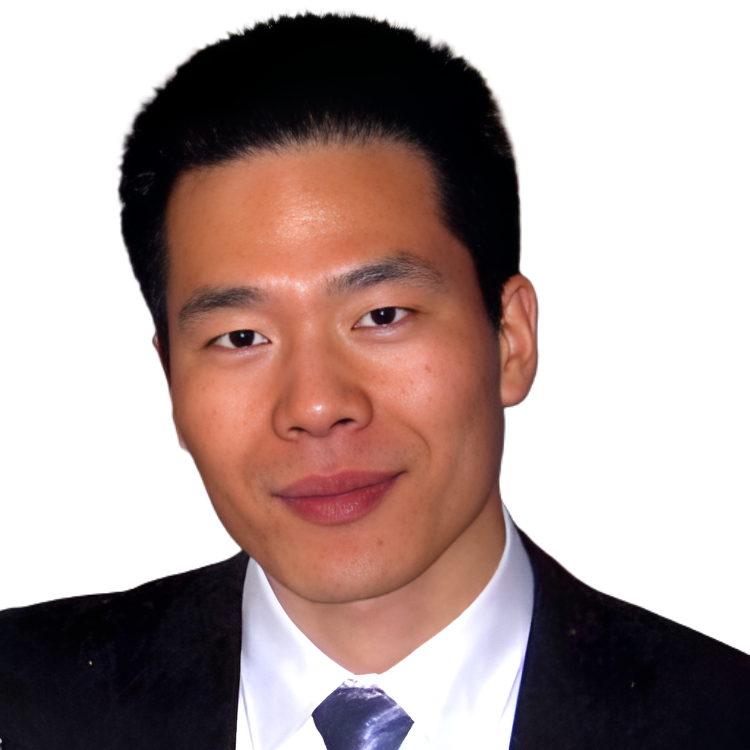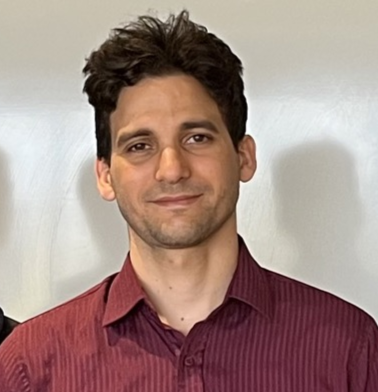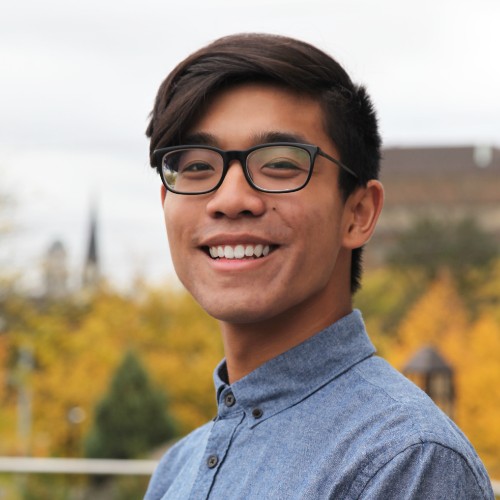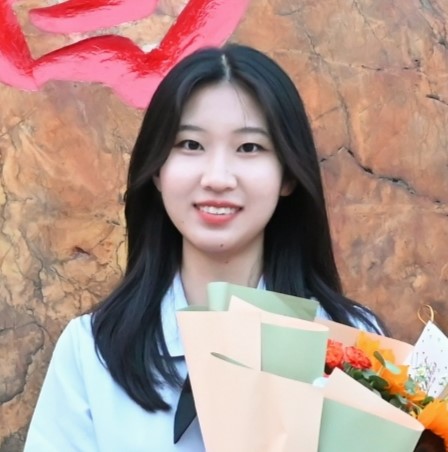University of Calgary
Geospatial Sensing and Intelligence Lab (GSIL)
Members
Lincoln Linlin Xu
Assistant Professor
Post-doc in AI and machine learning, Waterloo Engineering, 2016
PhD in Geogaphy, Univerity of Waterloo, 2014
MSc in Geodesy, China University of Geosciences, 2010
BSc in Geomatics Engineering, China University of Geosciences, 2007
BSc in Computer Science, China University of Geosciences, 2007
Lincoln is a highly-interdisciplinary researcher with strong expertise on AI and machine learning, remote sensing, spatial data science and environmental monitoring, and demonstrated excellence, leadership and recognition. He has secured many competitive grants, including NSERC DG, NSERC Alliance Option 2, MITACS, OCI and CSA ROSS. He published one book chapter, 72 journal papers and 43 conference articles on high-impact journals and conferences. He has been involved in many invited talks and presentations to different audiences, and he frequently serve as reviewers, guest editors, and associate editors for high-impact remote sensing journals and conferences. He has substantial teaching experiences and successful highly qualified personnel (HQP) training records. He has supervised and co-supervised 15 PhD students, 10 MASc students and 5 undergraduate students.
Phone: (548) 994-0989
Email: lincoln.xu@ucalgary.ca
Address: 2500 University Dr NW, Calgary, AB Canada, T2N 1N4
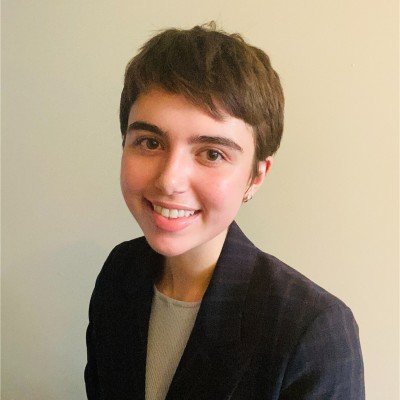
Mabel Heffring
MSc student
Mabel is a MSc candidate in the Department of Geomatics Engineering at the University of Calgary, supervised by Prof. Lincoln Xu. She received her Bachelor of Science degree in Geomatics Engineering, with a Minor in Entrepreneurship and Enterprise Development, from the University of Calgary in 2023, graduating with Distinction. Her research focuses on applying machine learning and AI to remote sensing, developing advanced deep learning algorithms for mapping the Pan-Arctic sea ice environment using Synthetic Aperture Radar (SAR) and Passive Microwave imagery. These efforts support critical applications such as climate change studies, Arctic sea route navigation, and climate adaptation for northern communities.
Email: mabel.heffring1@ucalgary.ca
Address: 2500 University Dr NW, Calgary, AB Canada, T2N 1N4
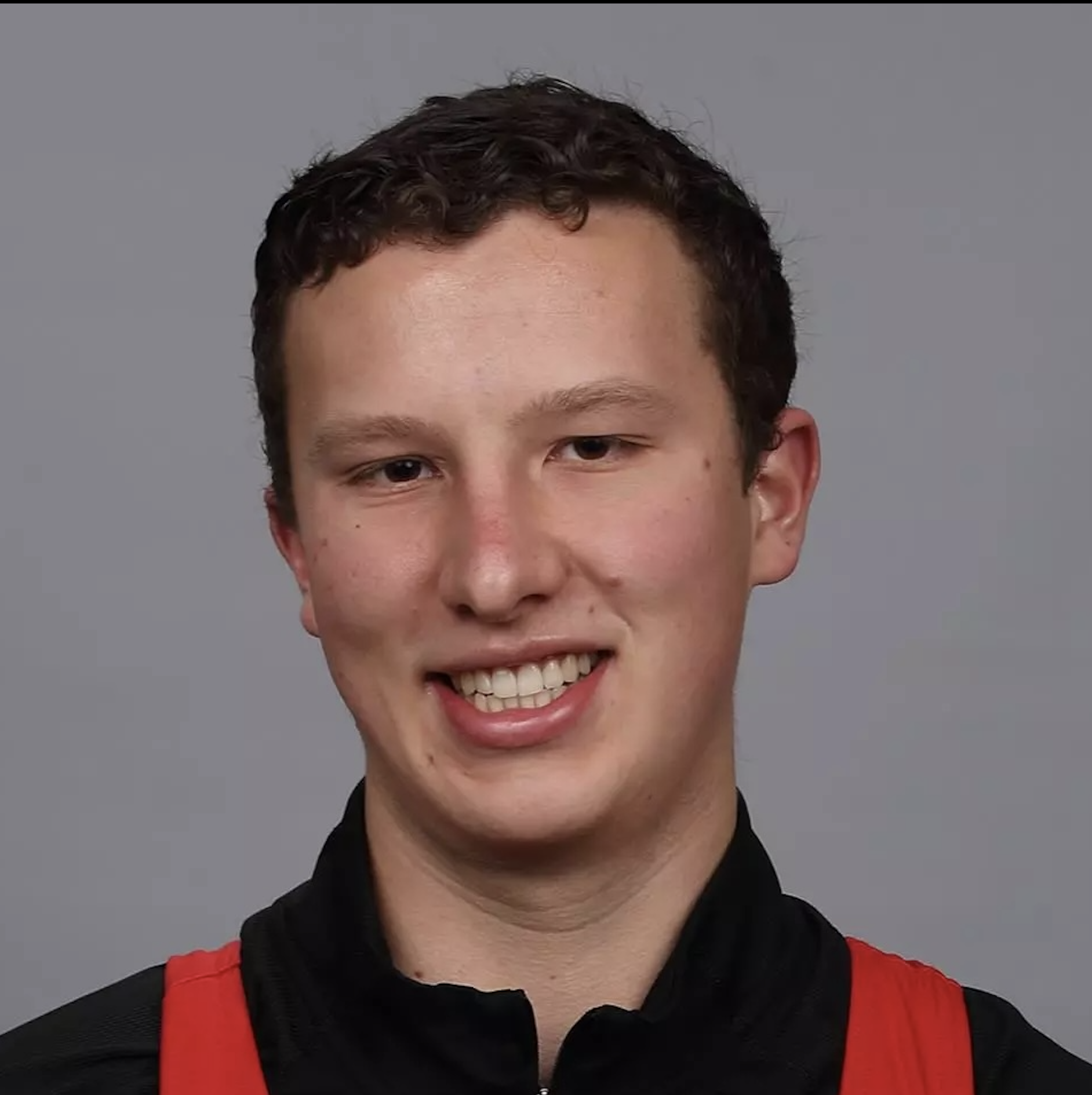
Zack Dewis
MSc student
Zack is a MSc candidate in the Department of Geomatics Engineering at the University of Calgary, supervised by Prof. Lincoln Xu. He earned his Bachelor of Science degree in Geography with Distinction from the University of Calgary in 2023. His research focuses on developing deep learning algorithms for large-scale land cover and land use mapping and monitoring, using MODIS time series datasets. This work supports advancements in environmental monitoring, sustainable development, and land management. He has also contributed to projects such as machine learning-based waterbody detection and geothermal mapping using Landsat imagery. Beyond academic achievement, Zack is also a competitive athlete. He was a dedicated member of the University of Calgary Dinos Rowing Team from 2019 to 2023 and earned the “Most Improved Athlete” award in 2021.
Email: zachary.dewis@ucalgary.ca
Address: 2500 University Dr NW, Calgary, AB Canada, T2N 1N4
Zhengsen Xu
PhD student
Zhengsen is a PhD candidate in the Department of Geomatics Engineering, University of Calgary supervised by Prof. Lincoln Xu. His main research field is deep learning and remote sensing to predict wildfire risk across Canada, which is critical for environmental management and disaster mitigation. By leveraging diverse data sources such as climate records, weather patterns, remote sensing data, and historical wildfire occurrences, AI algorithms can discern subtle spatial-temporal patterns and correlations, enabling more accurate and timely forecasts of wildfire outbreaks. Zhengsen's research aims to improve the current state-of-the-art predictive capability, such that it empowers wildfire management to minimize the devastating impact of wildfires on ecosystems, human settlements, and infrastructure.
Email: zhengsen.xu@uwaterloo.ca
Address: 2500 University Dr NW, Calgary, AB Canada, T2N 1N4
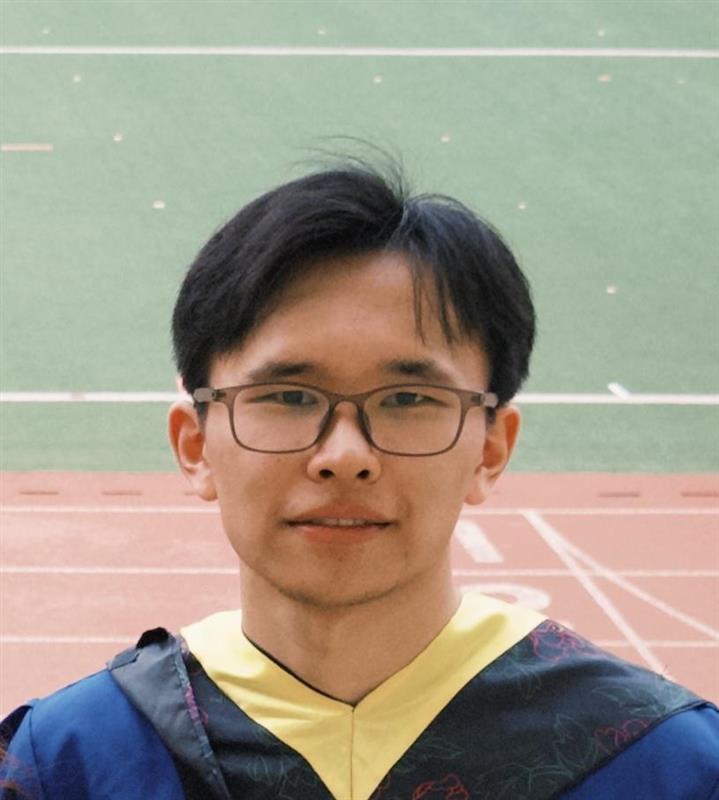
Yimin Zhu
PhD student
Yimin Zhu is a PhD candidate in the Department of Geomatics Engineering, University of Calgary supervised by Prof. Lincoln Xu. Yimin's research focuses on the use of deep learning for hyperspectral image processing and analysis in support of high-precision land cover land use classification and environmental monitoring. Yimin has published multiple papers in top-tier journals, including IEEE Journal of Selected Topics in Applied Earth Observations and Remote Sensing (JCR Q1, IF 5.5). Yimin has developed innovative algorithms such as SS-ConvNeXt and DiffCRN, achieving state-of-the-art performance in hyperspectral image classification. He is proficient in Python, MATLAB, and PyTorch, and has a keen interest in Google Earth Engine. Yimin has received numerous academic honors, including the Best Master Thesis, Academic First-Class Scholarship and the QiuSuo Scholarship. Outside of her research, Yimin is actively involved in science popularization and is an active member of a badminton club.
Email: yimin.zhu@ucalgary.ca
Address: 2500 University Dr NW, Calgary, AB Canada, T2N 1N4
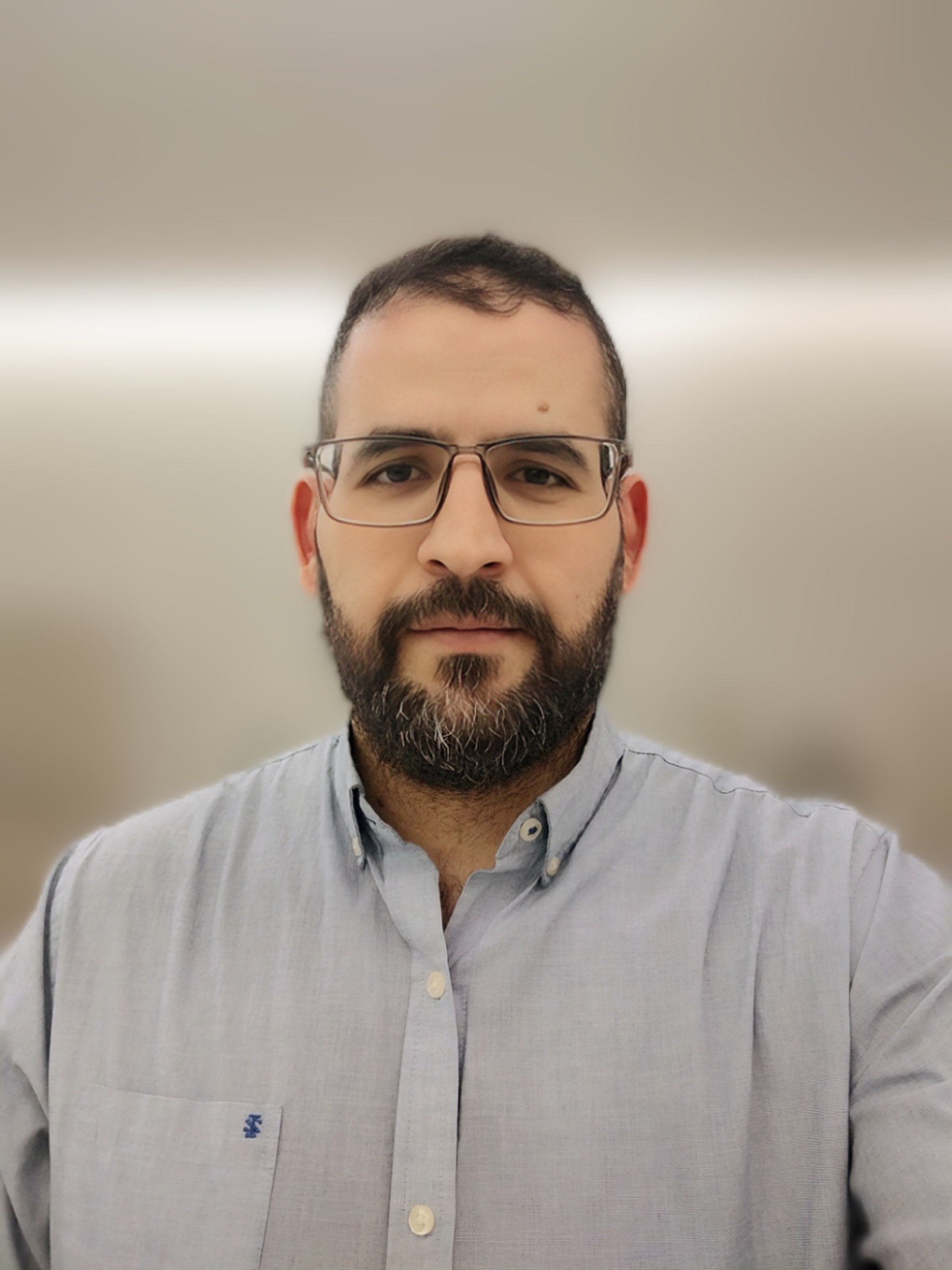
Motasem Alkayid
PhD student
Motasem is a PhD candidate in Geomatics Engineering at the University of Calgary, supervised by Prof. Xu and Prof. Naser El-Sheimy. His research focuses on developing cutting-edge image classification techniques for large-scale land cover and land use mapping using deep learning and Earth observation data. With over a decade of experience in GIS and remote sensing, Motasem has worked as a research assistant at ICARDA and a teaching assistant at the University of Jordan. His expertise spans geospatial data processing, image classification, and AI applications in environmental science. He has also contributed to multiple projects involving object detection, including glacier movement and refugee tent mapping.
Email: motasem.alkayid@ucalgary.ca
Address: 2500 University Dr NW, Calgary, AB Canada, T2N 1N4
External Members
Javier Noa
PhD student
Javier Noa Turnes is a PhD candidate in Systems Design Engineering, supervised by Prof. David A. Clausi and Prof. Linlin Xu. His main research field is machine learning on remote sensing applications. He is currently dedicated to sea ice classification using Synthetic Aperture Radar (SAR) imagery and passive microwave data, studying the inclusion of large contextual information in deep learning models for semantic segmentation.
Email: jnoaturnes@uwaterloo.ca
Address: 295 Phillip St, Waterloo, ON N2L 3W8
Muhammed Patel
MSc student
Hi, I am Muhammed Patel I am a graduate student pursuing a Master of Applied Science in Systems Design Engineering at the University of Waterloo. Prior to this, I completed a dual degree program in Industrial Engineering and Industrial Engineering Management with a specialization in Optimization at the Indian Institute of Technology (IIT) Kharagpur. I am currently working on automatic whale detection and sea ice classification from SAR images.
Email: m32patel@uwaterloo.ca
Address: 295 Phillip St, Waterloo, ON N2L 3W8
Jayden Hsiao
MSc student
Jayden is pursuing his MSc in Systems Design Engineering, University of Waterloo, co-supervised by Prof. David Clausi and Prof. Linlin Xu. He is interested in the semantic segmentation of sea ice using synthetic aperture radar (SAR) and passive microwave (PM) data to improve Indigenous community safety, climate modelling, and ship navigation. Jayden completed a BSc in Systems Design Engineering at the University of Waterloo in 2024. His research is generously funded by the Engineering Excellence Master’s Fellowship.
Email: j3hsiao@uwaterloo.ca
Address: 295 Phillip St, Waterloo, ON N2L 3W8
Yaxuan Liu
MSc student
Yaxuan (Tian) is pursuing her MSc in Systems Design Engineering, University of Waterloo, co-supervised by Prof. David Clausi and Prof. Linlin Xu. She is interested in developing machine learning and deep learning approaches for hyperspectral image processing and analysis to improve the monitoring and mapping of vegetation and agriculture in Canada. She also explore the use of knolwedge-driven radiative transfer models, e.g., Prosail, to improve the performance of deep learning models.
Email: y369liu@uwaterloo.ca
Address: 295 Phillip St, Waterloo, ON N2L 3W8
Kyle Gao
PhD student
I am a PhD candidate in Systems Design Engineering, University of Waterloo, co-supervised by Prof. Jonathan Li and Prof. Linlin Xu. I obtained my MSc in Accelerator Physics at the University of Victoria in 2020, and the Honours Bachelors degree in Mathematics and Mathematical Physics Co-op program at the University of Waterloo in 2016. My recent work has been in deep learning, specifically, Computer Vision and its application to point clouds and aerial orthoimages. I have recently worked on segmentation of aerial orthoimages with applications to building rooftop detection and land use/land cover classification, as well as segmentation and classification of LiDAR point clouds. Im also interested in Point Cloud Quality Assessment and Compression. I am currently investigating both geometric and deep learning-based Point Cloud Quality Assessment metrics in order find a fast Point Cloud Quality Assessment method with high correspondence to the Human Visual System.
Email: y56gao@uwaterloo.ca
Address: 200 University Ave W, Waterloo, ON N2L 3G1
Dening Lu
PhD student
I am a PhD candidate in Systems Design Engineering, University of Waterloo, co-supervised by Prof. Jonathan Li and Prof. Linlin Xu. 3D laser scanning has been successfully applied to document surface conditions and model the actual geometrical dimensions of urban architectures, due to its capacity for automated, efficient, and high-density point acquisition. Large-scale point cloud processing and analysis have important research value for urban construction and structural health monitoring. With the rapid development of deep learning, combining point cloud processing and deep learning technology has become a major trend in the field of computer graphics. My research interests mainly focus on point cloud processing and understanding, such as 3D object detection, point cloud segmentation and reconstruction, which can be applied to various fields like urban modeling, structure inspection and autonomous driving.
Email: d62lu@uwaterloo.ca
Address: 200 University Ave W, Waterloo, ON N2L 3G1
